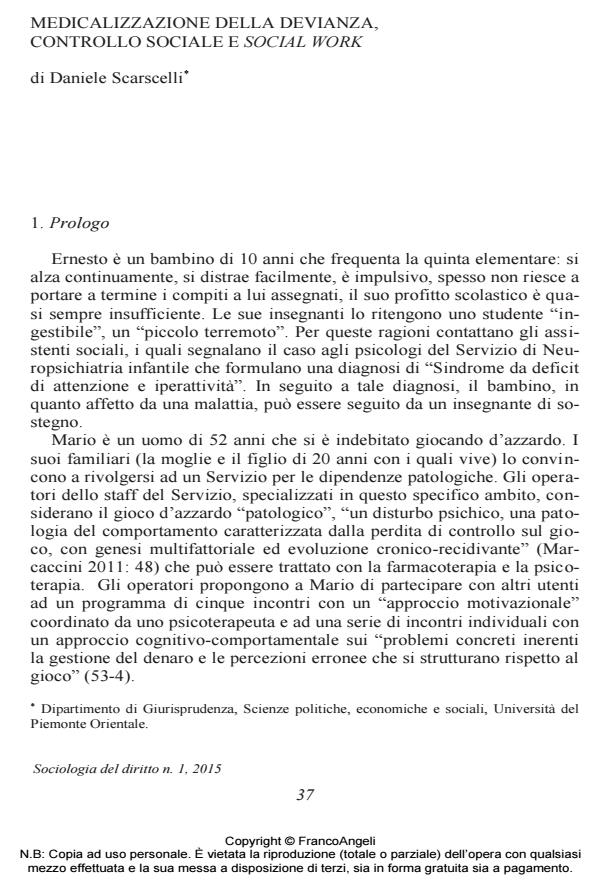Medicalizzazione della devianza, controllo sociale e social work
Titolo Rivista SOCIOLOGIA DEL DIRITTO
Autori/Curatori Daniele Scarscelli
Anno di pubblicazione 2015 Fascicolo 2015/1
Lingua Italiano Numero pagine 28 P. 37-64 Dimensione file 198 KB
DOI 10.3280/SD2015-001002
Il DOI è il codice a barre della proprietà intellettuale: per saperne di più
clicca qui
Qui sotto puoi vedere in anteprima la prima pagina di questo articolo.
Se questo articolo ti interessa, lo puoi acquistare (e scaricare in formato pdf) seguendo le facili indicazioni per acquistare il download credit. Acquista Download Credits per scaricare questo Articolo in formato PDF

FrancoAngeli è membro della Publishers International Linking Association, Inc (PILA), associazione indipendente e non profit per facilitare (attraverso i servizi tecnologici implementati da CrossRef.org) l’accesso degli studiosi ai contenuti digitali nelle pubblicazioni professionali e scientifiche.
Negli ultimi decenni il processo attraverso cui un problema non medico viene trattato come se fosse un problema medico, processo che viene definito con il termine di "medicalizzazione", si è esteso in modo così rilevante nelle nostre società che ormai sono molti gli ambiti della esperienza umana che vengono interpretati alla luce del paradigma medico. Tra i problemi non medici che vengono definiti e trattati come fossero disturbi emotivi o malattie, ve ne sono molti che rientrano tra gli ambiti di intervento dei social workers. L’articolo mette a fuoco una questione centrale per il mandato istituzionale e professionale del social worker: il modo in cui la medicalizzazione della devianza influenza le forme con cui viene esercitato il controllo sociale. In particolare, vengono evidenziate le differenze tra un approccio clinico finalizzato alla "correzione" dei devianti e un approccio comprendente orientato, come in Matza, alla loro "rivalutazione".
Parole chiave:Medicalizzazione - Devianza - Controllo sociale - Social work - Empowerment
Daniele Scarscelli, Medicalizzazione della devianza, controllo sociale e social work in "SOCIOLOGIA DEL DIRITTO " 1/2015, pp 37-64, DOI: 10.3280/SD2015-001002